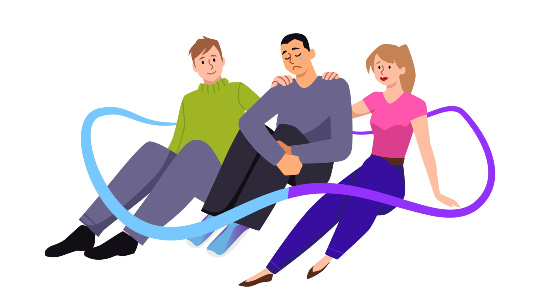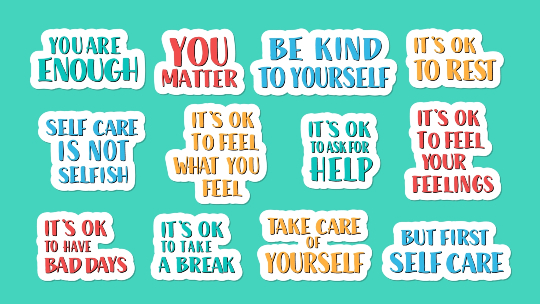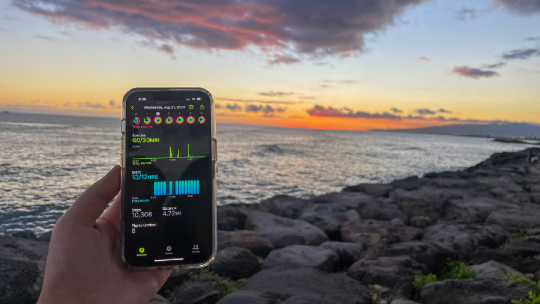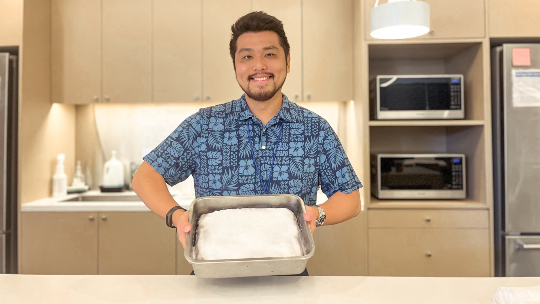Suicide is the 11th leading cause of death in the U.S. It’s a public health problem, but there’s so much stigma around it that people may feel ashamed to reach out for help.
September is National Suicide Prevention Month. We spoke with Andrea Plasko, a licensed therapist and social worker, about the importance of keeping the conversation open.
The startling numbers
An estimated 13.2 million American adults seriously considered suicide in 2022, 3.8 million made a plan, and 1.6 million attempted. Nearly 50,000 people died by suicide.
People of all ages, ethnicities, and genders can be at risk for suicide. Risk factors include:
- A history of previous suicide attempts.
- Chronic pain.
- Depression, other mental disorders, or substance use disorder.
- Exposure to violence, including physical or sexual abuse.
- Family history of a mental disorder.
- Family history of suicide.
The warning signs
There are ways to prevent suicide. Everyone can do their part by recognizing warning signs. People who are thinking about suicide may:
- Talk about being a burden, wanting to die, or having great guilt or shame.
- Isolate themselves, give away important items, or make a will.
- Use drugs or alcohol more often.
- Have extreme mood swings.
- Feel empty, hopeless, extremely sad, or full of rage.

Family and friends are often the first to notice the signs. They can help their loved one find their way out of the darkness by starting the conversation and listening without judgment.
“By normalizing conversations around mental health, we can convey that it’s OK not to be OK and encourage those struggling to reach out for support,” says Plasko.
Discussing suicide may feel uncomfortable, but it can help save a life. Providing that safe space for open conversation can help people feel less isolated and more understood.
“Talking about suicide is crucial because it breaks down the barriers of stigma, allowing individuals to feel more comfortable seeking help,” says Plasko. “Raising awareness can help reduce death by suicide and suicide attempts by fostering a supportive environment.”
The resources
If you’re feeling suicidal, telling a trusted person can provide immediate emotional relief and practical support. Seeking professional help from a therapist or counselor can also reduce the sense of isolation and hopelessness.
“Therapy provides a safe, confidential space to explore your feelings and thoughts,” says Plasko. “You can develop coping strategies and learn techniques to manage stress and emotions; identify underlying issues and address the root causes of distress; and build resilience, strengthening your mental health over time.”
“Seeking help is a sign of strength, not weakness,” says Plasko. “By fostering open discussions about mental health, we can create a community where everyone feels supported and understood. Together, we can make a difference.”
For those in suicidal crisis or emotional distress, call 911 or go to the nearest emergency room immediately.
The National Suicide Prevention Lifeline also provides free and confidential support and crisis resources. Call or send a text to 988 to connect with a counselor.

Mental health matters
Someone is always ready to listen and support you. For more stories on the importance of mental health, read below:
hawaii youth get mental health support
Hawaii’s teens are struggling with their mental health. Statistics show self-reported increases in depression and anxiety since 2016, and teen suicide attempts that require medical attention in Hawaii exceed the national average. To help address the youth mental health crisis, HMSA invested $125,000 to support several initiatives statewide. Learn more about the programs and the resources they provide.
hmsa sponsors award-winning play to raise mental health awareness
Emotional well-being and taking care of your mental health is important for everyone. To help raise awareness about this sensitive subject, HMSA sponsored Tony-award winning play, Dear Evan Hansen, at Manoa Valley Theatre. See how this powerful musical addresses anxiety, grief, and loneliness through the story of Evan Hansen, a teenager dealing with social anxiety and depression. Plus, learn about behavioral health resources and programs that HMSA offers.
may is mental health awareness month
Though one in five adults in the U.S. lives with a mental illness, there still tends to be a stigma about it. The American Psychiatric Association estimates that more than half of the people in the U.S. with a mental illness don't receive help for their condition. In observance of Mental Health Awareness Month, we talked with James Westphal, M.D., psychiatrist and consulting mental health medical director to HMSA from Carelon Behavioral Health, to discuss how to approach this sensitive subject.
national depression and education month
October is National Depression Education and Awareness Month. Depression is one of the most common mental disorders in the U.S., affecting millions of people. Learn about common symptoms of depression, how therapy can help, and what to do if a loved one may be dealing with a mental health condition.




